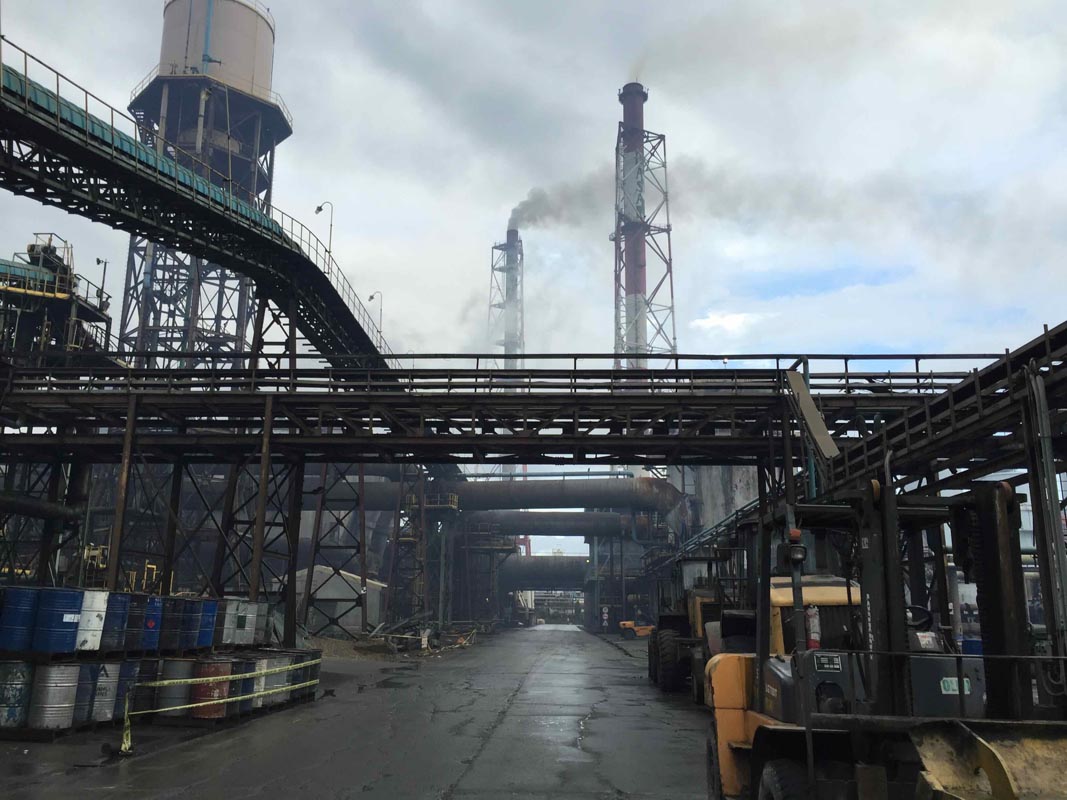Competitive Advantage
Concentrate processing
A South Korean client processes molybdenum concentrates from mining operations, converting them into specialized molybdenum oxides and copper using varied metallurgical methods. They leach molybdenum concentrates with hydrochloric acid to dissolve free copper, subsequently precipitating it as a separate product.
Post-leaching
After leaching, the molybdenum concentrate, now in oxide form, undergoes downstream processing via a thermite reaction to produce ferro molybdenum. This serves as a feedstock for crafting specialized high-tensile strength pipes essential in the oil and gas sectors.
Our value-add
We facilitated the plant's debottlenecking process by assessing alternative solid-liquid separation methods and optimizing cake washing procedures, ultimately enhancing overall plant performance. Our technology is not constrained to the production of final “concentrates”, but available to many applications downstream.
Rare metal extraction
We work with a metals recovery plant and refinery located in Switzerland, which extracts rare and precious metals from incinerator bottom ash. In Switzerland, due to limited landfill space, all local municipal waste undergoes incineration.
Waste-to-metals opportunity
The metals concentration in incinerated bottom ash is notably high, as metals remain intact during the combustion of carbonaceous materials. Hence, this represents a direct waste-to-metals opportunity, with plans to replicate this model nationwide pending funding.
Our value-add
Our technology supports the solid-liquid separation of products produced from the metal’s recovery process. This is a new and novel technique, with little global benchmarking – pure process development with the client.
Industry Highlights
Our Process
Our projects evolve, enhancing our understanding, engineering precision, and cost accuracy. We guide clients through this journey, ensuring timely achievement of investment targets. Unlike traditional OEMs, we provide a dedicated contact for comprehensive support from start to finish.
 Project Benchmarking
Project Benchmarking
Utilizing a decade's worth of data from labs and operations, coupled with observational analysis, we've created an AI model. It rapidly evaluates material "filterability" by examining their physical, chemical, and mineralogical traits. This assists in predicting costs for different filtration methods, aiding early decision-making and validating engineering feasibility.
 Bench-Scale Testwork
Bench-Scale Testwork
To optimize testwork accuracy and quality control, we've launched our subsidiary, Canadian Critical Minerals Research, conducting all bench-scale tests for clients. Our process involves collaboration between technicians and engineering staff to integrate learning outcomes into project stages. Unlike other OEMs divesting in-house labs, we're heavily investing in our 3,000 sq. ft. facility in Kamloops, BC, ensuring comprehensive services.
 Conceptual Engineering and Process Flowsheet Development
Conceptual Engineering and Process Flowsheet Development
We offer conceptual engineering services alongside initial testwork results to merge data into practical outcomes. Our process integrates sample data, mineral processing principles, and a mix of proprietary and standard equipment. These studies finalize major process elements, enabling estimation discipline.
 Pilot-Plant Testwork
Pilot-Plant Testwork
For complex projects, longer-term pilot-plant testwork may be necessary to validate data over time due to sample variability. Our facilities can handle large sample volumes and equipment for onsite pilot studies. We also provide containerized and mobile test rigs for global deployment to customer sites.
 Front-End Engineering (FEED) and Detailed Engineering
Front-End Engineering (FEED) and Detailed Engineering
Once the process flowsheet design is confirmed, we advance the project into a FEED study to improve estimate accuracy. This includes finalizing piping and instrumentation diagrams, equipment lists, and specifications for vendor engagement and procurement. With in-house engineering expertise, we also collaborate with trusted third-party consultants as needed.
 Project Execution & Construction
Project Execution & Construction
With vast experience in managing large-scale capital projects across remote areas, our team has successfully built plants in numerous countries. We handle all project execution functions, including procurement, logistics, quality assurance, and more. Our personalized project management services add significant value, with our team often acting as owner’s
 Operational Readiness (OR)
Operational Readiness (OR)
Operational Readiness is crucial for seamless handover of information from engineering to operations. Our OR phase includes thorough HAZID/HAZOP analysis and collaboration with vendors, ensuring a well-prepared workforce for day-to-day operations.
 Commissioning
Commissioning
Upon delivery, we inspect facilities for compliance and authorize equipment installation. We oversee construction verification and assist with assembly as per specs. The commissioning team supervises dry commissioning to detect issues. Wet commissioning follows, transitioning to live operations with slurry feed for filtration.
 Operations
Operations
After reaching steady-state operations, we support clients through the post-commissioning phase, known as the "valley of death." Our commissioning team remains in operational support roles for the critical first hundred days, ensuring a smooth transition with maximum impact on return of capital.
Why Choose CEC Mining Systems?
Single Point of Contact
A single point of contact to supply full scope solutions through the project life-cycle.
Testing & Design Competency
Competency in the testing, design, and applications of traditional and novel technologies.
Strong Vendor Relationships
Effective working relationships with a diverse mix of vendors and sub-contractors to assemble the best project team.
Team Integration and Support
Integration within the end-user personnel and processes to ensure unified understanding of scope and responsibilities.
Agile Responsiveness
Highly agile responsiveness to end-user requirements.
Boutique Approach
A boutique approach to project delivery.
Startup and Commissioning
Extensive start-up and commissioning capabilities and experience in remote jurisdictions.
